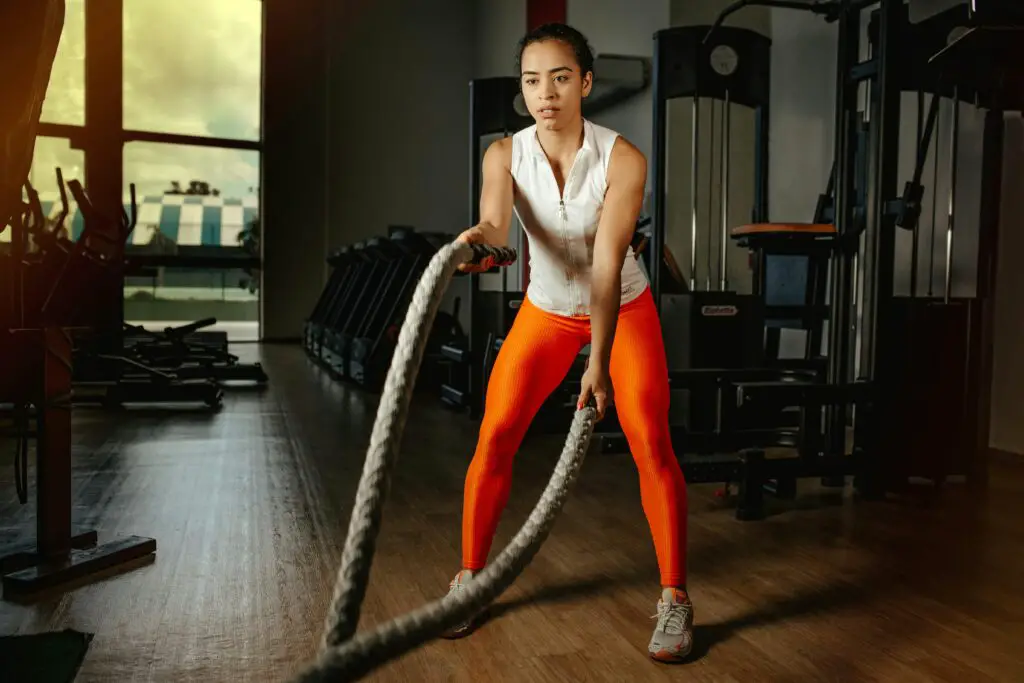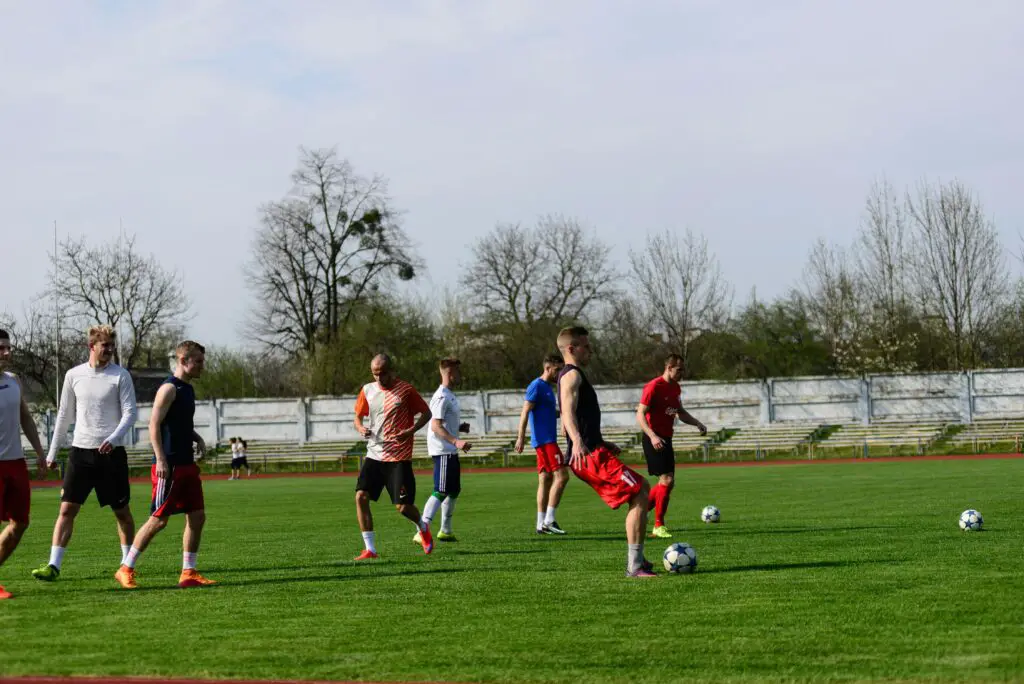Your way of life significantly impacts your overall health, restoration, and performance as an athlete. It’s important to prioritize recovery, take care of your health, and handle stress in addition to training time. This article will explore several aspects of an athlete’s lifestyle that help them stay in shape and give their best.

An athlete’s lifestyle extends beyond their training and competition. It includes a holistic approach to fitness and health, emphasizing rehabilitation, mental wellness, exercise, diet, and injury prevention.
Importance of Lifestyle for Athletes
A balanced lifestyle is crucial for athletes to maximize their potential and preserve long-term health. It reduces the chance of injury and burnout while ensuring they have the stamina, strength, and energy to succeed in their chosen sport.
Balanced Nutrition for Athletes
A well-balanced diet rich in proteins and healthy vitamins, minerals, lipids, and carbs are necessary for athletes to fuel their training, support muscular building, and maintain general health. To meet their energy needs and maximize performance, they must eat nutrient-dense foods, including fruits, vegetables, whole grains, lean proteins, and healthy fats.
Understanding Macro and Micronutrients:
Proper nutrition is the cornerstone of an athlete’s lifestyle. They need a diet high in micronutrients (vitamins and minerals) and macronutrients (carbohydrates, proteins, and fats) to support their exercise, aid in recovery, and maintain optimal health.
Meal Timing and Frequency:
To sustain constant energy levels and promote muscle growth and repair, athletes should prioritize eating regular meals and snacks throughout the day. Timing meals around training sessions can improve recovery and performance.
Hydration for Optimal Performance
For athletes to maintain optimal performance, regulate body temperature, and support cardiovascular health, they must drink enough water. They should drink water regularly throughout the day to replenish fluids lost through perspiration during training and competition.

Importance of Regular Exercise and Training
Variety in Workouts:
Athletes should participate in a range of exercises and training methods to increase their general fitness, guard against injuries, and avoid burnout. They can develop their strength, endurance, and quickness by including aerobic exercise, flexibility exercises, strength training, and sport-specific drills in their schedule.
Rest and Healing
For athletes, rehabilitation and relaxation are equally important to training. Resting enough enables the body to renew and repair muscle tissue, restore energy reserves, and adjust to exercise demands. It’s important to prioritize sleep, schedule rest days, and employ recovery methods like foam rolling, stretching, and massage.
Quality Sleep and its Impact on Athletic Performance
Sleep is essential for both healing and sports performance. It is essential for immunological response, hormone balance, and cognitive function. Good sleep should be an athlete’s priority to maximize their athletic development and restoration.
Mental Health and Stress Management
Stress Management Techniques:
Athletes must maintain mental health and stress management to compete at their peak. Deep breathing, mindfulness, meditation, visualization, and other techniques might support individuals in maintaining their flexibility, motivation, and focus—especially under difficult circumstances.
Injury Prevention Strategies
Athletes must prevent injuries to maintain their health and continue training and competing. This includes correctly warming up before exercise, exercising with appropriate form and technique, gradually raising volume and intensity, and paying attention to their bodies to prevent overtraining.
Building a Support System
Athletes can surround themselves with a solid support network that includes coaches, teammates, family, and friends to get the emotional support, direction, and encouragement they need to overcome obstacles and maintain motivation.
Role of Professional Coaching and Guidance
By working with certified coaches and sports specialists, athletes can maximize their training, optimize their technique, and create individualized rehabilitation and nutrition schedules that are suited to their unique requirements and objectives.

Individualized Training Programs:
Coaches create individualized training plans based on each athlete’s requirements, objectives, benefits, and limitations. Strength training, conditioning, skill development, and recovery techniques are just a few of the components that these programs include. Their goal is to maximize an athlete’s performance while lowering their risk of injury.
Motivation and Accountability:
Trainers encourage athletes to exceed their comfort zones, conquer challenges, and pursue greatness by acting as mentors and motivators. By offering motivation, assistance, and helpful criticism, they support athletes in maintaining their discipline and attention. They also assist athletes in maintaining discipline, focus, and responsibility toward their training routine and objectives by offering motivation, support, and insightful criticism.
Performance Analysis and Feedback:
Coaches analyze an athlete’s technique, tactics, and general performance using various tools and approaches, including video analysis, performance analytics, and observational commentary. To help athletes develop their skills and decision-making abilities, they point out areas for improvement, emphasize their strengths, and offer helpful criticism.
Strategic Planning and Game Management:
Coaches create game plans, strategies, and tactics for teams to defeat rivals and increase their chances of winning. They evaluate their rivals’ advantages and disadvantages, plan strategic plays, and alter tactical plays during games to seize opportunities and lower risks.
Benefits of Cross-Training
Cross-training involves changing an athlete’s schedule to increase overall fitness, prevent boredom, and lower the chance of overuse problems from repetitive motions.
Improved Fitness Levels:
Cross-training exposes athletes to a variety of physical activities, including agility exercises, flexibility work, strength training, and cardiovascular exercise. By participating in a variety of workouts, athletes can build a well-rounded fitness profile with strength, endurance, speed, agility, and coordination.
Incorporating Flexibility and Mobility Work
Flexibility and mobility are crucial for athletes to move effectively and avoid injuries. Incorporating mobility drills, yoga, and stretching into daily practice can enhance the range of motion and joint stability.

Mindful Eating Practices
Eating carefully involves recognizing signs of hunger, chewing food gently, and appreciating every taste. It is useful for athletes to control portion sizes, choose healthier foods, and avoid consuming excessively.
Adapting to Travel and Competition Schedules
Travel and competition schedules may disrupt An athlete’s routine, but the effects can be lessened with careful planning and preparation. Traveling with a stocked snack bag, athletes can perform at their best by being hydrated and obtaining enough sleep.
Conclusion
A comprehensive lifestyle is necessary for athletes to maintain their health, fitness, and peak performance. By prioritizing diet, hydration, exercise, recovery, mental health, and injury prevention, athletes may maximize their performance and accomplish their sports goals.
